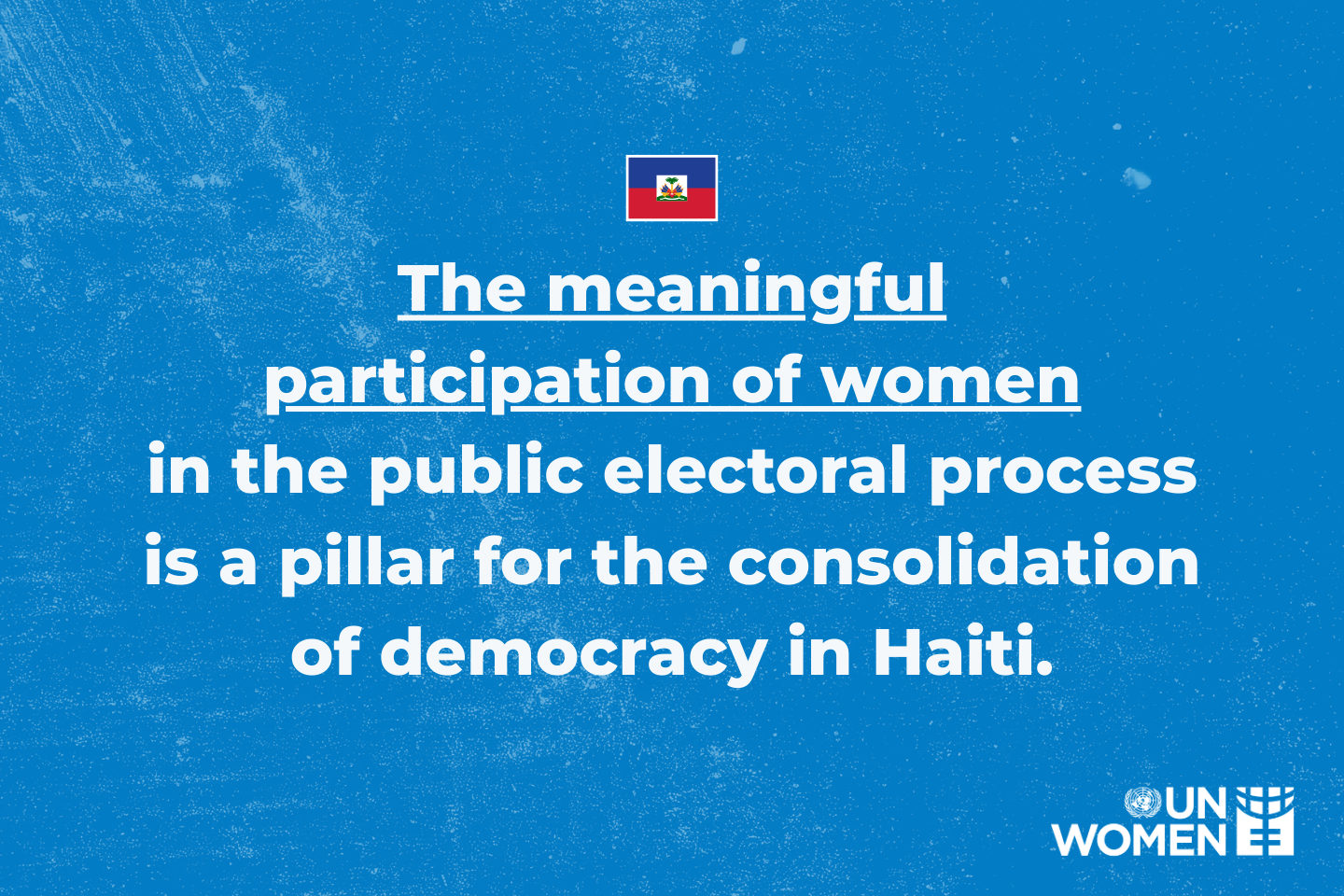The meaningful participation of women in the public electoral process is a pillar for the consolidation of democracy in Haiti
Date:

The recruitment of women to the communal electoral offices (OECs) and departmental electoral offices (OEDs) is a step forward in ensuring greater equality and inclusion in the Haitian electoral process. Their participation is a testament to their resilience and commitment to actively contribute to organizing the elections despite the significant challenges they face in their communities.
Women in Haiti have long played a transformative role in responding to social and environmental crises, mobilizing for democratic processes, and advancing human rights, all while facing barriers like gender-based violence, which also hinders their public engagement. Their participation ensures inclusive and representative electoral governance, guaranteeing the country's democratic legitimacy. Recent information on the personnel recruited by the Provisional Electoral Council (CEP) at the level of BED and BEC shows significant progress. Some departments show a participation of more than 30% of women in electoral management, notably in the South (38.1%), Les Nippes (33.33%), and the Centre (32.5%). Furthermore, in the South department, nine women have been appointed to lead the offices and two women in the Ouest 1 department.
These positive results demonstrate the commitment and efforts of the CEP to promote an increased inclusion of women, as well as the possibility of substantial progress if incentive measures for the application of the quota were implemented.
However, progress is not uniform throughout the country, showing geographical and structural disparities that need to be addressed. In the Ouest 1 department, 10 women were recruited, representing 27% of the elections, below the minimum quota of 30%. Similarly, in the Artibonite department, the rate of 27.77% of elected women remains insufficient for effective participation in decision-making.
Furthermore, municipalities such as Lascahobas (Centre), Arniquet (South), Ducis (South), and several others in the North-East and West have not registered any women among the candidates, which, in most cases, could explain the total absence of women in some municipalities. In Cité Soleil, Petit Goâve in the Ouest 1 department, and Cap Haïtien in the North department, this issue is very concerning, but the level of insecurity in these areas could potentially be one of the reasons.
This situation highlights the need to improve women's inclusion, especially in areas where their representation is insufficient. These results underscore the need to encourage greater participation of women in the process and to strengthen measures to support women's inclusion in the electoral process, including the management of electoral violence.
UN Women urges the Presidential Transitional Council (CPT) and the Haitian government to take further steps to ensure compliance with the minimum 30% quota for women, at all levels of government, including in the management of elections, but also in the nomination of candidates. which aligns with Haiti's national and international commitments to gender equality. These commitments must be translated into concrete actions, such as institutional reforms, incentives for women's participation, and awareness campaigns to overcome systemic, cultural, and political obstacles to women's inclusion.
Finally, UN Women reaffirms its commitment to supporting women in the electoral process and working with national institutions and international partners to strengthen their participation in political and public life. The international community closely follows the progress made in Haiti and continues to encourage the country to fulfill its commitments to gender equality. Women's full participation in public affairs management is a fundamental pillar for the consolidation of democracy and sustainable development in Haiti.